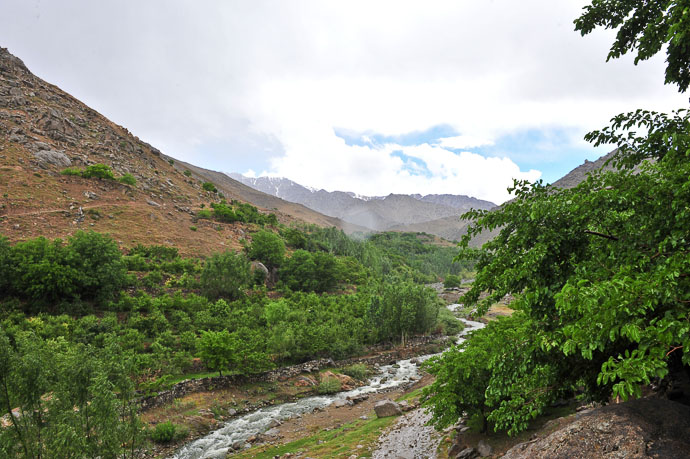
Ministry Updates
Why All Missionaries Are Environmentalists (or Should Be)
June 24, 2014
by Mark Watson

Steve Dresselhaus, a senior director at TEAM, shares about the vision behind TEAM’s creation care initiatives.
Whether or not he or she knows it, every missionary is an environmentalist. Perhaps not the tree-hugging, Gaia-worshiping, organic-brown-rice-eating style of environmentalist caricatured by the media, but a practicing one, nonetheless.
Obviously, some of us are more specialized and intentional in creation care than others, and we could all do a bit better at it. But each of us is somewhere to be found on the caring-for-the planet continuum.
Anyone who has fed a poor person, been involved in healthcare, helped in disaster relief, taught a child to use a trash can, fixed a leaky faucet, car pooled, enjoyed a sunset or a day at the beach, preached against predatory greed and accumulation, or turned off a light in an empty room is playing a part, tiny though it be, in obeying the first command given by God.
This command, which precedes all others and cannot be ignored if we say we are followers of Jesus, is the Genesis 1 mandate for us to reign over all life on the planet. We cannot love the Lord our God with all our heart, soul, and strength without loving what he loves, nor can we love our neighbor as ourselves without protecting where our neighbor lives, nor can we be holy as he is holy while ignoring what he told us to care for.
Caring for the planet is all about love, obedience and compassion. It has nothing to do with a political agenda, at least not for Jesus followers.
Somewhere in our history, we Westerners adopted an ancient Greek way of looking at the cosmos which separates the spiritual and physical into two worlds, one of which became more important than the other. The material, physical world was deemed less important than the spiritual world, a sad and unbiblical way of seeing things in light of God having created the cosmos and declaring the whole thing good.
The goodness of the world was challenged, and imbalance and chaos rushed in, when the first couple, in an act of accumulative greed, took the first thing they did not need and which they had specifically been told not to consume. This first sin, this pursuit of human divinity, was compounded by being an act of sinful accumulation. It gave birth to the entire environmental problem we face today. The selfish accumulation of resources, whether they are stored in over-stuffed garages, in rented self-storage units, or hoarded around our waist, remains the source of environmental degradation and the injustice that always accompanies it.
When Jesus died and reconciled to God everything he created, he also brought back together the material world and the spiritual world. In this reconciled world, it is no longer possible to view loving our neighbor as ourself as somehow not involving the physical world. It is no longer acceptable to think of telling someone to be clothed and fed without actually feeding and clothing that person. Feeding the poor is part of caring for the environment.
In Jackson, Wyoming, they dump hay during the harsh winters to help the elk population in the U.S. National Elk Refuge, a last resort for these animals whose natural migratory routes and food sources were cut off long ago by construction projects, tourism and urban development. Feeding elk is different from feeding the poor only in that the hungry person we care for is created in the image of God and thus enjoys a privileged status far beyond that of the elk. The root cause of hunger for both elk and man, however, is the same; it is sin and, in this case, the sin of misusing the environment.
The environment always has been and always will be God’s tool for providing for every creature he created. The God who cares for sparrows, who tells us not to mistreat animals, and who promises to meet our every need would never have created a system incapable of caring for the creatures he placed in it. It is impossible to love people without loving the creation God placed them in. It is impossible to love someone but do nothing to rescue them from dangerous living conditions. Love can never turn a blind eye to anything that harms anyone.
The cosmos was created in absolute perfection and will someday return to that perfection, because our God is the God who reconciles all things to himself through the blood of his Son. Until Jesus, the resurrected one, returns as the physical reigning king, we who follow him must obey him. Until Jesus returns, TEAM missionaries will continue making and gathering disciples of Jesus who possess a comprehensive world view that includes caring for the environment as a privileged opportunity to serve and to love.
Related articles


